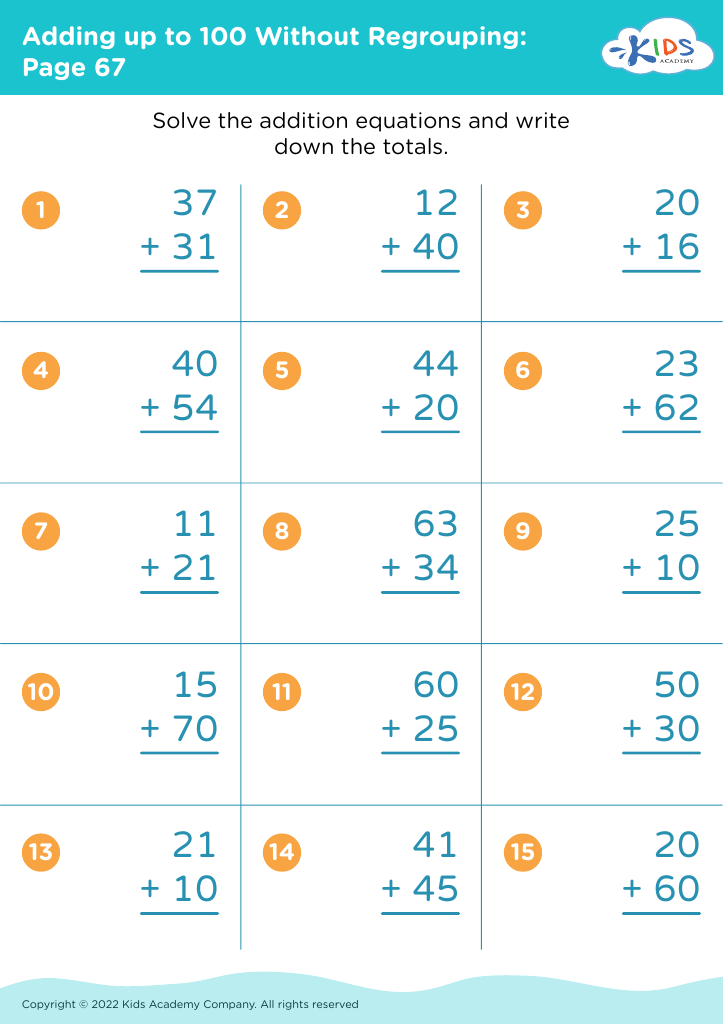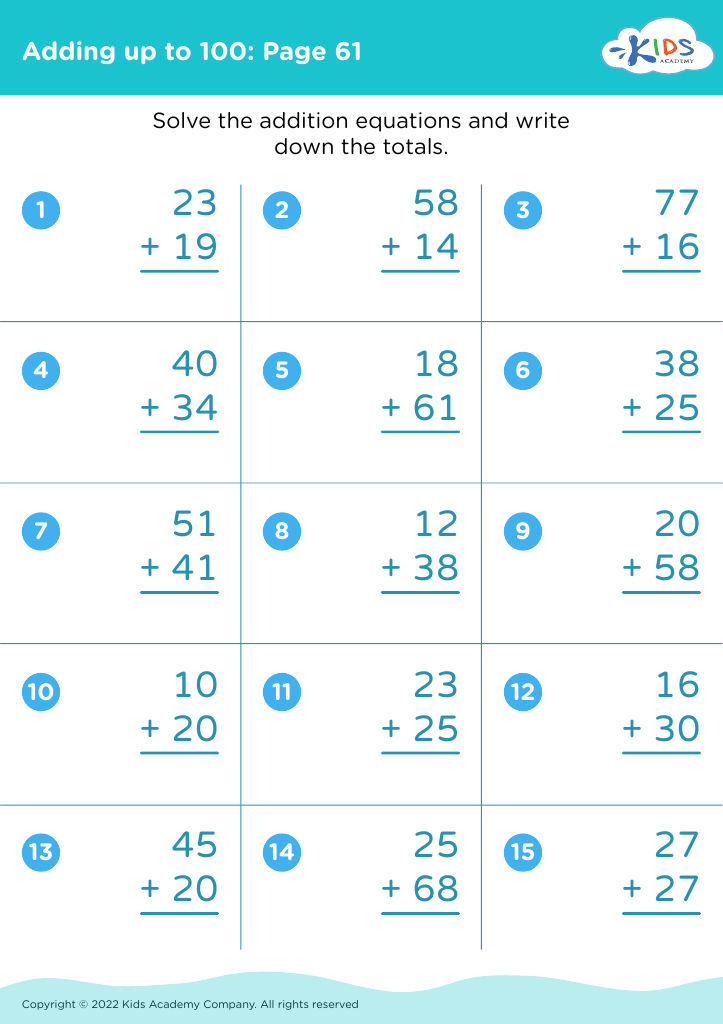Cognitive Development Adding up to 100 Worksheets
4 filtered results
-
From - To
Unlock your child's potential with our "Cognitive Development Adding Up to 100 Worksheets." Designed for young learners, these engaging worksheets provide a fun and interactive way for children to enhance their mathematical skills while supporting cognitive growth. By focusing on adding numbers that total up to 100, kids will develop essential problem-solving skills, number sense, and critical thinking. Our thoughtfully crafted activities encourage exploration and practice, making math enjoyable. Perfect for teachers and parents alike, these resources offer a solid foundation in mathematics while promoting cognitive development. Dive into a world of learning where numbers become a child's best friend!
Cognitive development is fundamental to a child's overall growth and successful learning, making it essential for parents and teachers to prioritize. This process refers to how children think, learn, and understand the world around them. Awareness of cognitive development stages helps adults create effective learning environments and appropriate educational activities tailored to children's needs.
Supporting cognitive development allows for the enhancement of critical thinking, problem-solving, and language skills. When parents are engaged and informed, they can foster homes rich in stimulation and exploration, encouraging curiosity and creativity. Similarly, teachers who understand how cognitive abilities evolve can design lesson plans that promote higher-order thinking and adaptability in students.
Moreover, research indicates that robust cognitive skills are directly linked to academic performance. By focusing on cognitive development, parents and teachers can mitigate learning delays and support children in achieving their full potential. Encouraging collaboration, communication, and social interaction further aids cognitive growth, creating well-rounded individuals ready for future challenges.
Ultimately, investing in children's cognitive development pays off by ensuring that they not only excel academically but also develop the emotional and social skills necessary for effective participation in society. Therefore, awareness and action in this area should be a priority for both parents and teachers.









%20(1).jpg)








